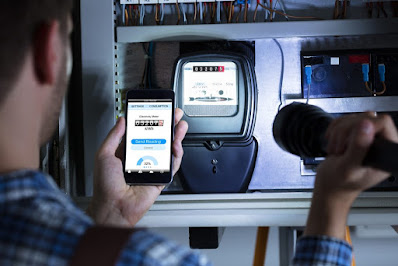CALCULATE THE ROI OF AN ENERGY EFFICIENT HVAC SYSTEM
Commercial building owners understand how valuable it is to have an energy efficient HVAC system. Whether it’s an office building, an apartment complex, a shopping mall, a university, or something else, one of the biggest monthly costs for commercial property owners is energy bills. Especially if you live in a climate where you have significant heating needs in the winter, and significant cooling needs in the summer.
If it’s time to upgrade or replace your commercial HVAC system, don’t be discouraged by the price tags on newer, more energy-efficient systems. Although the initial costs might be a significant portion of your budget, it’s important to remember that energy-efficient HVAC systems save you money in the long run, because of the savings reflected in your monthly energy bills.
What Makes an HVAC System Energy Efficient?
- Central heating and cooling: Central HVAC systems are much more efficient than having an individual unit in each room. For multiple rooms that have specific temperature needs, like a museum, individual units might be necessary, but for other commercial spaces, central heating and cooling is much more efficient in terms of energy usage and cost.
- A filter check mechanism: Your filters need to be replaced on a regular basis, but it can be easy to forget to do this. Dirty air filters make your HVAC system work even harder to deliver clean air, and a filter check light turns on to indicate it’s time to change the filters.
- A variable speed blower: The blower will crank up to a higher level when more heat is needed, for example first thing in the morning. Then, it will run at a lower speed when higher levels of heat aren’t needed.
When to Improve the Energy Consumption of Your HVAC System
There are several ways you can improve the energy consumption of your HVAC system. You likely have your heat running nearly continuously at this time of year, and if your energy bills seem to be continuously increasing, consider the following:
New HVAC Installation
It may be time to install a new HVAC system. The average lifespan of a commercial HVAC system is 15 to 20 years, and there have been many improvements in terms of technology, automation, and energy efficiency over the last decade or so.
Retro-fit HVAC
If your HVAC system is relatively new and still has several years left in its life, you can retro-fit certain components of it to increase its energy efficiency. Ask your HVAC contractor what’s possible with your current HVAC system.
How Do You Calculate the ROI of an Energy Efficient HVAC System?
If you want to calculate the ROI of an energy efficient HVAC system, we recommend checking in with your HVAC technician. They’ll have some generalized breakdowns for their HVAC systems, however a more accurate estimate depends on several factors such as the size of your building, the size of your HVAC system, and your specific heating and cooling needs.
The Department of Energy has an energy and cost savings calculator for energy-efficient products that you can use to better understand how much money you’ll save when you invest in an energy-efficient commercial HVAC system.
Originally published at: https://www.tritechenergy.com/blog/energy-efficient-hvac-system/

Comments
Post a Comment